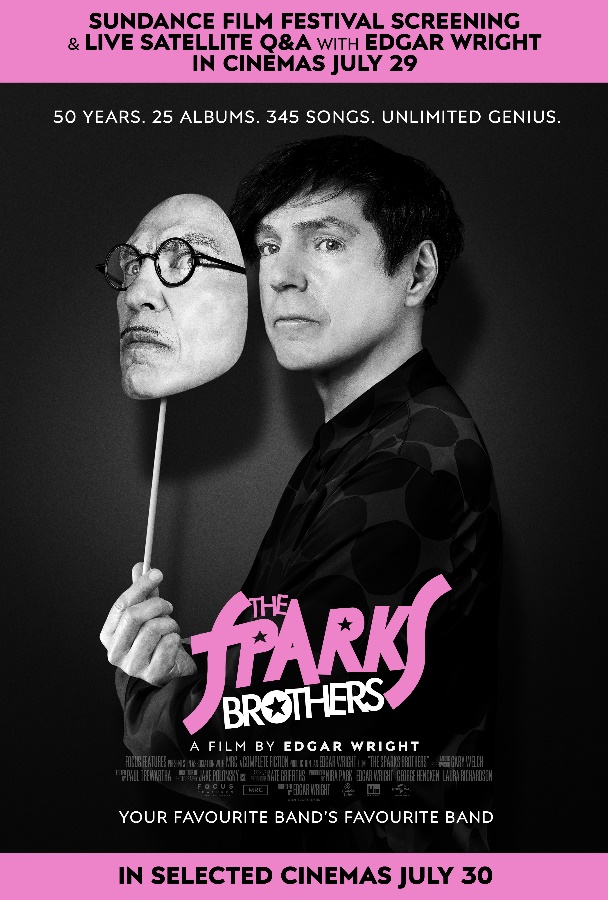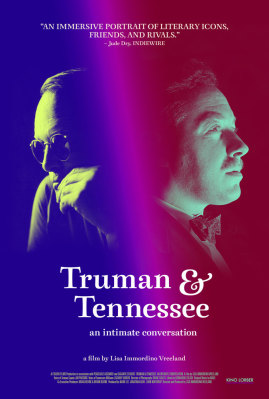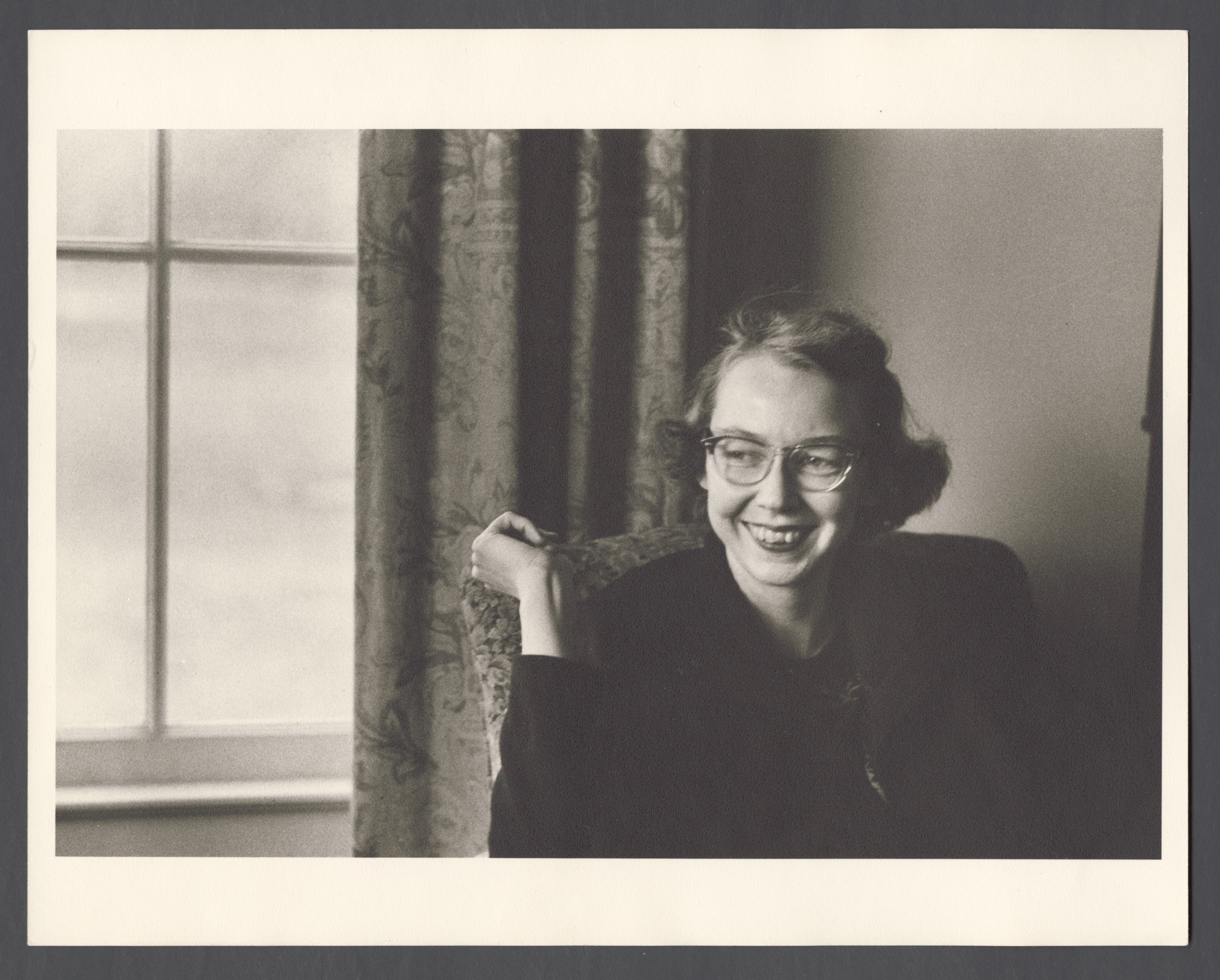Now Playing
Current DJ: Alex Gilbert
Rose Gray Louder, Please from Louder, Please (Play It Again Sam/PIAS) Add to Collection
Requests? 773-DJ-SONGS or .(JavaScript must be enabled to view this email address)

by Kyle Sanders
There I was, sitting in an AMC theater surrounded by my fellow film nerds--er, um, critics--settling down, getting comfortable, offering up some friendly chit-chat, when a moment we were all too familiar with took place: the dimming of the lights.
We were quickly advised to turn off our cell phones as the large screen lit up before us, large letters foreshadowing the table of contents of a made up magazine.
The distinctive voice of Oscar-winning actress Anjelica Huston boomed through the theater, relaying to us the history behind The French Dispatch of the Liberty, Kansas Evening Sun. It's sole mission: to "bring the world to Kansas."
The critics around me chuckled at a montage of distinctively edited clips gussied up in Wes Anderson fashion, no doubt familiar with the inner workings of a professional yet frenzied publication. It dawned on me just what a perfect start this was to the next two weeks of my life: The French Dispatch brings the world to Kansas, and the Chicago International Film Festival brings the world of cinema to me.
And so begins the 57th Annual Chicago International Film Festival! This is my eighth year attending, and it's always exciting to see what new titles from around the globe are competing for international acclaim and attention.
What’s the point of a music festival? The answer depends on who you ask: To make money; To perform your art in front of crowds while also getting paid; To see bands, hang out with friends, enjoy the weather, and maybe have a transformative experience..
The festival that still stands out in history is the 1969 Woodstock Music and Arts Festival. It’s not just a touchstone in American music, but American culture. The electrifying performances and peaceful gathering of hundreds of thousands of fans remain an ideal image of what festivals can be.
Two new documentaries highlight two other major milestones in music festival lore, one of them lost to history until now, the other one something a lot of people would rather forget.
 by Clarence Ewing
by Clarence Ewing
As a group of English New Wavers once put it, "It ain't what you do, it's the way that you do it." In Pop music, monetary success and flash-in-the-pan stardom is easy. Becoming an influence, not just on other artists but on an entire era, has far more lasting rewards that can’t be measured in dollars.
Very few can make a claim to being an influence in the music galaxy, to being a “musician’s musician.” One undisputed example of this is the band Sparks.
Born and raised in California and originally performing under the name Half Nelson, Russell and Ron Mael knew they would spend their lives in music. An early and beneficial encounter with legendary producer Todd Rundgren focused their sound and gave them the best kind of start to their careers.
Russell handles the vocals, Ron plays the keys and wears the mustache. Despite the vibrant '70s California music scene, the brothers would have to go to Europe to hit their stride, a move that would land them in a bristling stew of Punk, Electronica, New Wave, Post-Punk, and Classical influences.
Through the ensuing decades, using a number of backing musicians, the duo adopted a steady, workmanlike approach to their creativity while remaining consistently inconsistent in the styles of music they created. Having managed to avoid the hedonistic traps and self-destructive pitfalls that doom so many other bands on their journey, Sparks have kept their focus squarely on their music, and that has carried them through over 40 years of collaboration.
 by Kyle Sanders
by Kyle Sanders
Truman and Tennessee: An Intimate Conversation
Directed by Lisa Immordino Vreeland
"If you can't be yourself, what's the point of being anything at all?"
You know it's a sign of progress when the sight of another corporate logo splashed in rainbow colors as recognition of Pride month causes one's eyes to roll. In what should be an appreciative acknowledgement of the LGBTQ+ movement, these symbolic messages of love and unity are often seen as a half-assed gimmick meant to make a profit.
As soon as July 1st rolls around, that message is quickly disregarded and it's back to business as usual. While that may be so, it's a huge step forward considering the hostile culture from sixty years ago.
Pride might not have been a thing back then, but Truman Capote and Tennessee Williams didn’t seem to need it. Two of America's greatest writers, they were both openly gay. One was a novelist who dabbled in plays, the other was a playwright who dabbled in novels. Both were raised in the ever-oppressive South where tensions ran high with their ever-repressive fathers. Their greatest works adapted into (somewhat great) films, with characters who were complex, desperate, and flawed. It was only natural that both men would develop a friendship, now documented in Truman and Tennessee: An Intimate Conversation.
 by Kyle Sanders
by Kyle Sanders
There are many celebrated female writers, but very few who have the eccentricity of Flannery O'Connor. Her southern upbringing mixed with an unmovable Roman Catholic faith concocted a sardonic, grotesque mentality that crafted some of the greatest Southern Gothic stories in American literature.
With such a rich and prolific imagination, it's hard to believe her writing career was so brief, having been cut short by Lupus, which would claim her life at the age of thirty-nine. Now, debuting just days before what would have been her ninety-sixth birthday, PBS' American Masters series is releasing a documentary about her life, simply titled Flannery.
Co-directed, written, and produced by Elizabeth Coffman and Mark Bosco, Flannery examines the astonishing life of a self-proclaimed "shy, inarticulate" woman who yearned for "a cool, sophisticated wit." Growing up in Milledgeville, Georgia, O'Connor had an early sense of mortality as a child and a level of creativity where the profane blended with the sacred.